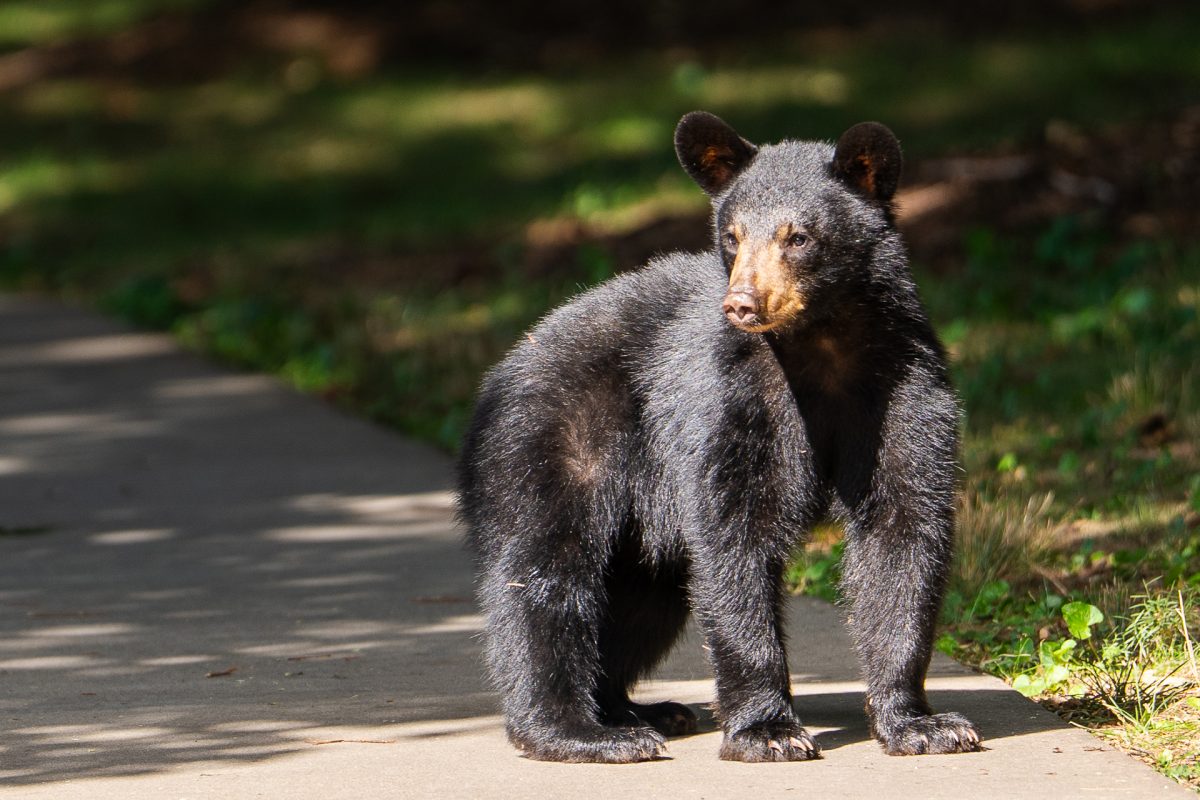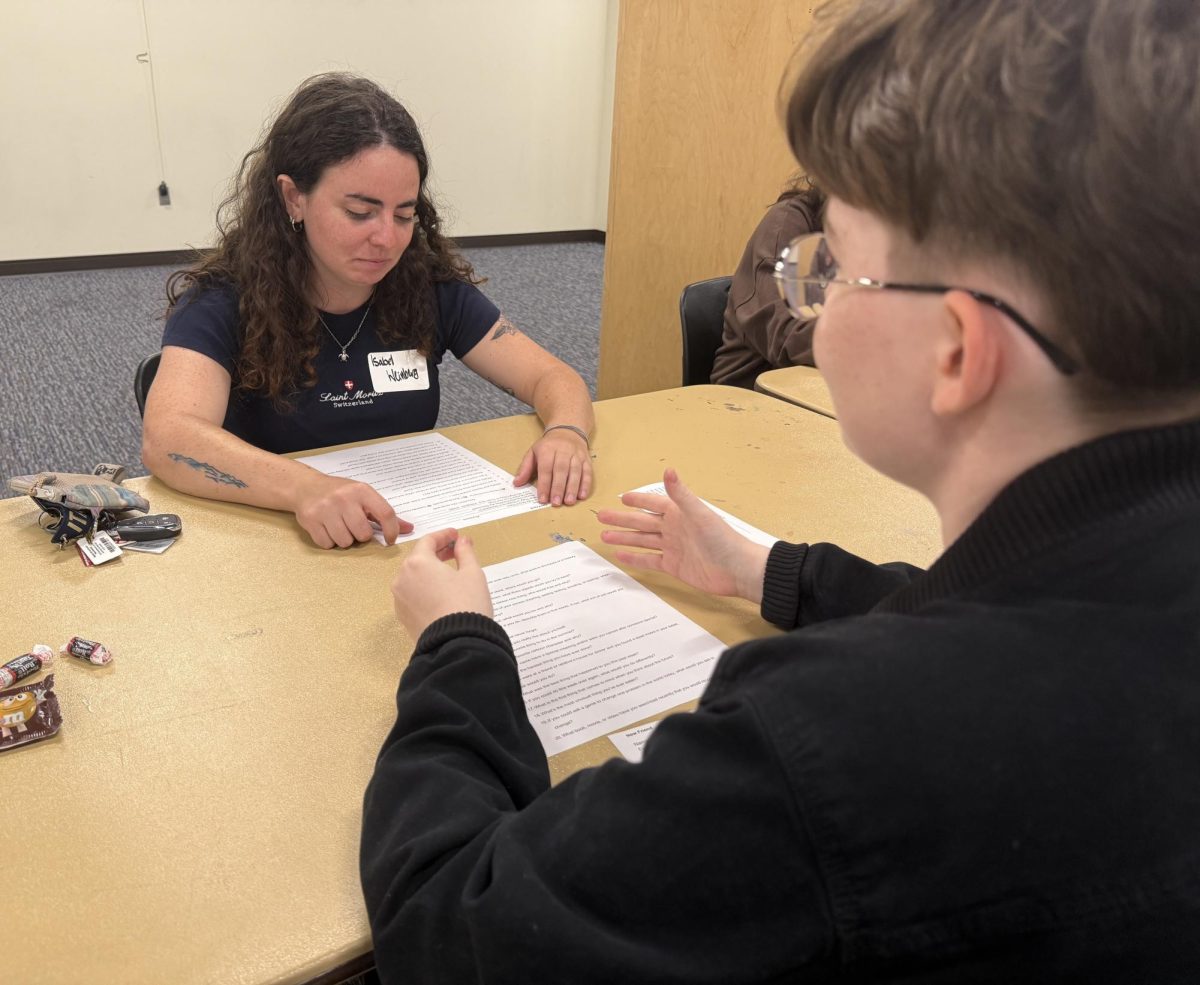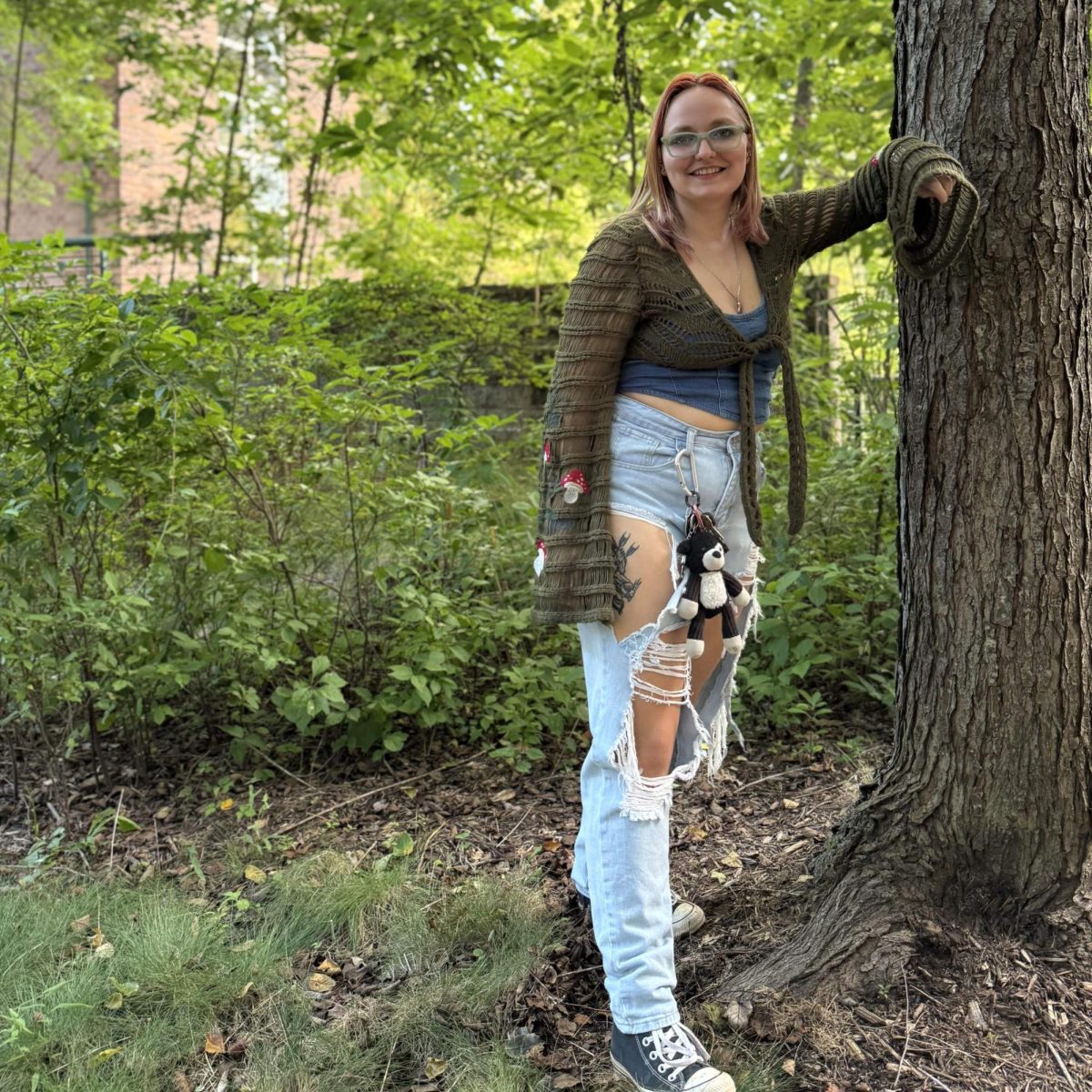Linda Cummins
Multimedia Staff
[email protected]
Her first stories she created and told to the cows, goats and sheep on the family farm in Uganda.
“I started making up conversations with livestock, giving them names based upon their behavior,” said Mildred Barya, assistant professor in English at UNC Asheville.
I didn’t take them seriously at the time but years later I looked back and realized that a seed had been planted and I nurtured it the best way I knew how, Barya wrote on her website.
“Growing up in Uganda I was surrounded by storytellers and poets and singers,” Barya said. “Poetry was always there.”
Poetry infused her life and culture to the point that Barya said she even remembers working in the garden while poetry, dance or music surrounded her.
“I really didn’t think of it as poetry until school, education, helped me put names to the things I was already born into,” Barya said.
Barya certainly did not know when she told stories to the cows she would one day grow up to be the author of three poetry collections and the recipient of several writing awards, including the Pan-African Literary Prize for Fiction.
“Dr. Barya brings an international perspective to the English department, which enriches our students’ experience,” said Katherine Min, associate professor of English. “She is, herself, wildly creative, and that energy, and enthusiasm for her work, is infectious.”

Give Me Room to Move My Feet, The Price of Memory after the Tsunami and Men Love Chocolates But They Don’t Say contain poems Barya wrote first, before creating a structure for the books.
“I will go through the poems and see what I have before I create a structure to frame my work. For a novel, the structure comes first,” Barya said.
She always has more poems than she needs and reads 10 or 20 to see what the thematic thread seems to be to create sections in poetry books, Barya said. She advised to focus on writing a good story, regardless of the form it takes — fiction, poetry or prose.
“Her interest lies with genre hybridity. Dr. Barya brings an ability to work with multiple genres as well as a perspective that looks beyond traditional genre boundaries,” said Kirk Boyle, assistant professor of English.
Barya weaves tales together like the storytellers of her youth and said upon removing all those labels and borders or boundaries, poetry becomes the same as lyrics, same as song.
“I end up writing all kinds of things. It’s when I put it together that I think about what genre it is because I do need to mention it when I send it to the editor or the publisher,” Barya said.
The genre is not nearly as important as the story itself, Barya said. She advises her students to pay attention to where their story is coming from, whether it is from an idea, image or character. An inner voice definitely drives inspiration to a story, Barya said.
“Sometimes, as a writer, you will have a voice in your head and it will be so clear and you will just start writing,” Barya said.
Barya seems to find inspiration in surprising places, said Evan Gurney, assistant professor of English.
“She has a creative attentiveness that I’m sure plays a large roll in her writing,” Gurney said. “She will encounter a turkey feather, for example, and it will give her a line of sight into a range of experiences, some realistic and some mystic.”
Once a writer starts to notice which element is prominent in a story, it brings in a new awareness and forms a writer’s work in a totally different way because they are now applying a conscious lens, Barya said.
“A lot of writing is subconscious. There will be things that come into your writing that you haven’t processed yet,” she said.
But when the writer puts the conscious lens to the work, they then understand which parts they can edit out. Editing is one process Barya definitely takes her own advice on.
“I’m a chronic reviser. I will read, edit until I no longer see errors on the screen. So then I will print it out to edit again,” she said.
Other than comprehensive editing, Barya recommends aspiring writers to write as much as possible without worrying about which genre the writing falls into.
“If you want to be a good writer, just write as much as possible. That’s all there is to writing,” Barya said. “You write.”


![Brooke Pedersen [second from the right] and Luis Reyes [right] hold banners during the Wrap The Woods event.](https://thebluebanner.net/wp-content/uploads/2025/09/ELIZABETH_PRITCHITT_IMG_3470-1200x804.jpg)



















